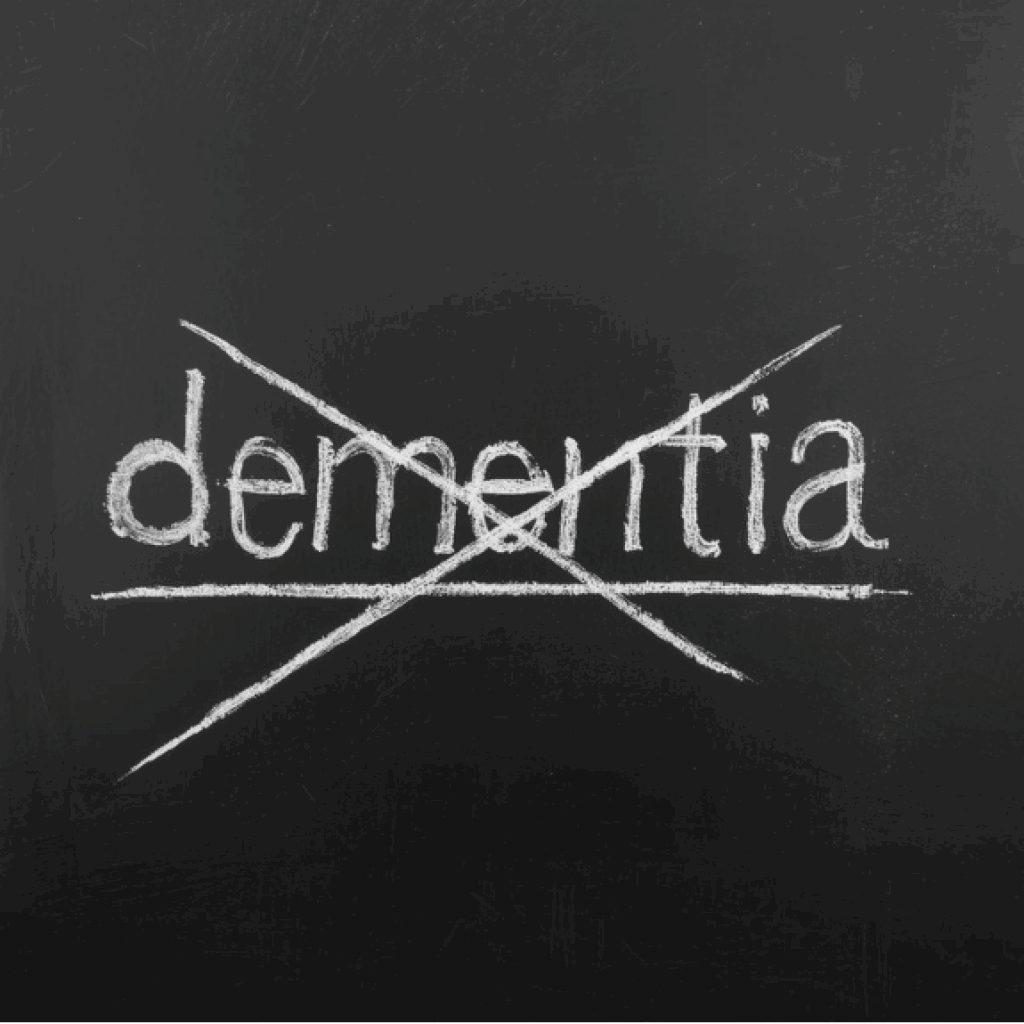By Dani Cabral, MD | Founder & Medical Director, BrainLove
For years, I’ve introduced diagnoses using a word that never sat right with me – dementia. It’s a term that’s centuries old, medically imprecise, and emotionally loaded. But over time, I’ve come to understand something deeper: this word does more than describe a syndrome. It shapes how people see themselves, how families respond, and how society treats those with cognitive changes.
The term “dementia” doesn’t just name a condition. It shrinks a person’s identity. It activates stigma, fear, shame, and a sense of “less-than” that often causes more suffering than the biology itself. And at BrainLove, where our entire mission is built on clarity, agency, connection, and what’s possible, I refuse to reinforce language that breaks people down.
This is why I am joining forces with the Initiative to Change the D-Word (www.notdemented.com) and officially phasing out the word dementia in my clinical practice, public health work, and BrainLove educational content. This change isn’t cosmetic. It’s a public health necessity. And it’s backed by both science and lived experience.
The Word “Dementia” Is Scientifically Inaccurate and Historically Harmful
The literal meaning of dementia is “without mind.” The term was minted in the 13th century and solidified in medicine in the 1700s, long before we had an understanding of brain health, neuroplasticity, Alzheimer’s biology, biomarkers, or precision diagnostics.
We now know:
- Multiple diseases can cause progressive cognitive-functional impairment
- Symptom severity exists on a spectrum
- Early detection and intervention can profoundly change trajectory
- Identity, capability, and meaning do not vanish with cognitive change
Yet the word “dementia” still conveys inevitability, helplessness, and decline. It has outlived its clinical usefulness and continues to inflict harm, reinforcing shame, preventing early care, and discouraging participation in prevention and treatment research.
Stigma Isn’t a Side Issue. It’s a Public Health Threat
Stigma is not an emotion. It is a social determinant of health as powerful as poverty or racism. Research shows stigma activates harmful stress pathways, driving inflammation, cardiovascular strain, and even hippocampal atrophy.
In real life, stigma looks like:
- Delaying help because you fear “the label”
- Avoiding research participation because of shame
- Withdrawing socially to avoid being judged
- Families hiding symptoms out of fear or embarrassment
And tragically, stigma accelerates decline not because the brain has changed, but because the world’s reaction has changed. This is where my newest concept comes in.
Introducing Dementia Dehumanization Syndrome: When Stigma Becomes the Disease
Across my work as a neurologist, psychiatrist, and Alzheimer’s researcher, I’ve observed a pattern that our medical vocabulary fails to capture: a psychological, social, and identity-level collapse that happens after someone is diagnosed or even suspects they might have “dementia.”
I define this as Dementia Dehumanization Syndrome (DDS): a secondary, potentially reversible syndrome driven not by the biology of disease but by the stigma surrounding it.
DDS shows up as:
- Premature withdrawal from social roles and meaningful activities
- Harsh self-judgment and internalized “I am less now” beliefs
- Loss of agency and autonomy
- Avoidance of new learning, joy, and connection
- Anticipatory grief for a life not yet lost
Most importantly: DDS is not caused by cognitive decline itself. It’s caused by cultural narratives that equate diagnosis with erasure of identity. This syndrome is clinically meaningful and modifiable. Replacing stigmatizing language is a direct intervention to reduce harm.
When We Change the Language, We Change the Trajectory
Words shape biology, behavior, and hope. Replacing “dementia” with clearer, more precise, and more human-centered language opens doors instead of closing them.
At BrainLove, we use terminology like:
- mild cognitive impairment
- progressive cognitive-functional impairment
- neurodegenerative disease
- Alzheimer’s disease or the specific underlying pathologic cause
- brain health changes
- cognitive resilience
These terms describe what’s happening without stripping away the person, their agency, or their future. They invite conversation rather than shutting it down. They encourage early detection instead of avoidance. And they reduce the shame that keeps families silent. This shift mirrors other historical changes retiring words like “moron,” “idiot,” and “retarded” when medicine recognized the harm those labels caused. The same must now happen with dementia.
What This Change Means for BrainLove
Phasing out the word dementia is central to the BrainLove model of high-tech, high-touch care. It supports our commitment to:
- Early detection without fear
- Proactive intervention and prevention
- Identity-centered care
- Empowered care partners
- Stigma-free communication
- Possibility-oriented aging
Our goal is not only to treat disease. It is to protect and expand identity, purpose, and agency throughout the journey.
This language change is a tool for healing.
A Call to Action: Let’s Rewrite the Narrative Together
The science is ready. The public health arguments are clear. The ethical path forward is obvious.
The word dementia causes avoidable suffering. It’s time to let it go.
By shifting our language, we can:
- Reduce stigma
- Improve health outcomes
- Increase research participation
- Strengthen families
- Support earlier engagement
- Honor each person’s humanity
Healing begins with the words we choose.
Find out more about the Initiative to Change the D-Word at www.notdemented.com.


